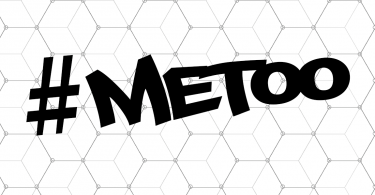The topic of feminism is host to a lot of misunderstanding and confusion. For me, somebody who studied sociology at both GCSE and A-Level, feminism has always been quite simple – it’s the belief in the social, political and economic equality of the sexes. However, for those people who haven’t been taught what feminism is, their lack of education on the subject means that they usually believe the stereotypes. I’ve lost count how many times I’ve had somebody find it funny or shocking that I consider myself a feminist, when they themselves aren’t even sure what the term means.
For the most part, people who don’t understand what feminism is are harmless – and are often willing to be educated on the subject by people who know more. But there are instances where a lack of knowledge can become harmful – one example being people who are vocal on the topic of women’s rights being sent death and rape threats online. Another, less obvious, example of how people not being educated on feminism can be harmful is how it can affect the movement itself. If one person is scared of identifying themselves as a feminist because they don’t want to be associated with the “man-hating, bra-burning” label that the movement has gained over the years, then it only detracts from the amount of power the movement has on issues it’s trying to tackle.
How do you solve these issues?
There’s only one way that this kind of confusion and general lack of knowledge on the topic can be counteracted – and that’s teaching feminism in schools.
Not only will teaching feminism in schools clear up any miscommunication surrounding the ideas of feminism, but it will help people from a young age start to understand exactly what impact gender has on a person’s life. The feminist movement is dedicated to eliminating rape culture, gender roles, getting rid of the pay gap, ensuring votes for women all over the world, increasing the representation of all minority groups in industries that mainly consist of white, straight cisgendered males, as well as telling anyone and everyone that your gender does not define you – and whatever gender you do or do not identify with should have no effect on the lifestyle you lead.

Image: Laura Forest/Flickr
Teaching feminism in schools will mean students will become more aware of the issues affecting their gender. It will give people the information and ability to fight back against any kind of gender-based discrimination that they may face in their lifetime. It will mean girls can feel confident walking down the street in whatever they want and not fear sexual harrassment. It will mean a boy can cry in front of his friends and talk about his emotions without being called out on it. It will mean an LGBTQ+ person can come out in an environment that is safe and understanding.
Not only this, but teaching intersectional feminism in schools will mean that pupils are aware of the experiences of women from other cultures. People being aware that the issues women from the UK face are entirely different to the issues that women from Saudi Arabia face will promote the kind of cultural understanding that the feminist movement needs in order to tackle issues such as cultural appropriation, black-face and the white-washing of the film industry.
Stop the stigma
As a feminist myself, it’s easy to say I’m bias towards the teaching of feminism in schools – but even while trying to be as objective as I can be on the idea, I still fail to see why it would be a negative thing. Teaching feminism in schools isn’t the same as forcing all school children to become feminists. I was taught conservativism in schools – but it doesn’t mean that I identify as a conservative and voted for David Cameron.
What it does mean, however, is that when the issue of conservativism comes up in conversation I am able to have a polite and well-informed discussion on the subject. And I personally believe that if the same thing was done with feminism, it would stop a lot of the controversy and stigma surrounding the movement in the first place.








